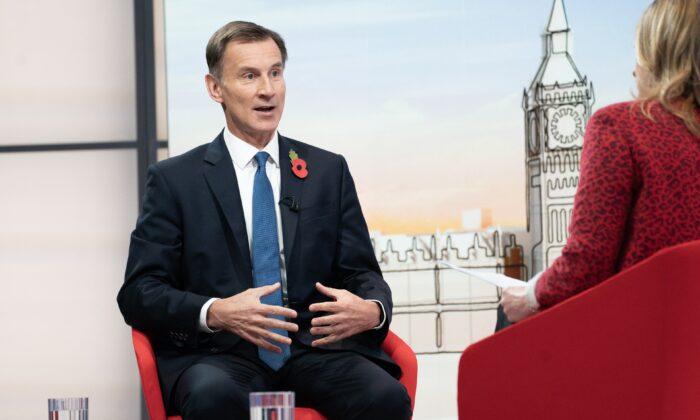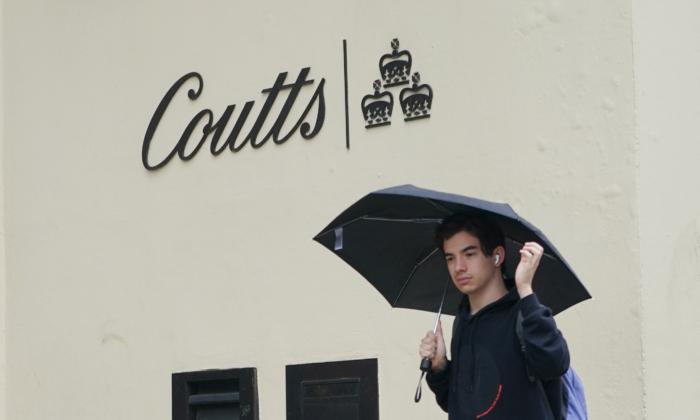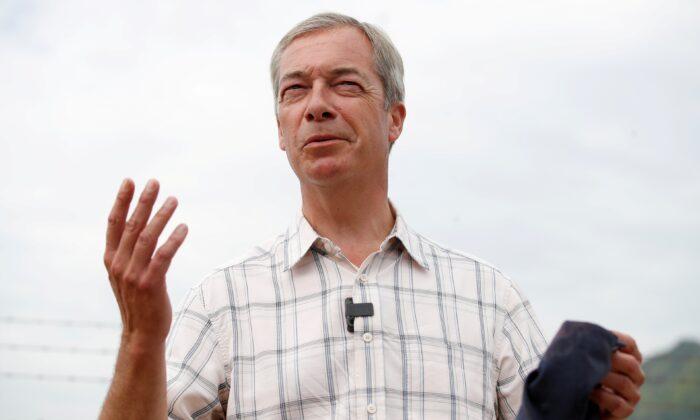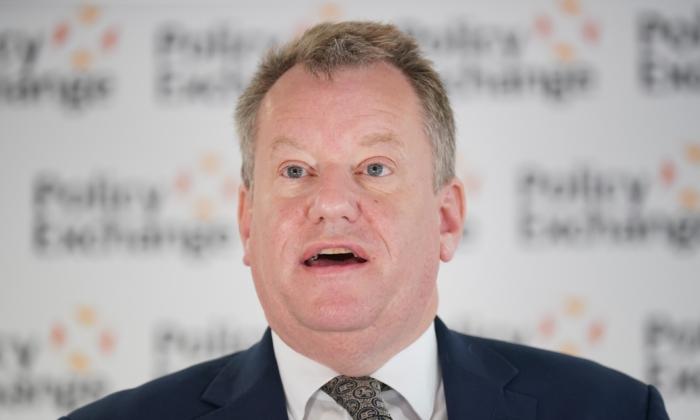Everyone in the UK will need to pay “a bit more tax” as the country seeks to balance its books, Chancellor of the Exchequer Jeremy Hunt has said.
Hunt, who is set to deliver his autumn budget on Nov. 17, has declared he will be playing Scrooge as he sets out his vision to restore financial “stability” and deliver “certainty” to families and businesses.
Talking to Sky News on Nov. 13, Hunt said: “We’re all going to be paying a bit more tax, I’m afraid.”
Tax U-turn
Hunt’s tax and fiscal policies stand in stark contrast to those of his predecessor Kwasi Kwarteng and former Prime Minister Liz Truss.After Truss became prime minister on Sept. 5, she set out to implement her economic vision for the UK to become a “low-tax, high-growth economy that would take advantage of the freedoms of Brexit.”
Her government used the “mini-budget,” delivered by Kwarteng on Sept. 23, to jump-start her new economic programme—nicknamed “Trussonomics”—with massive tax cuts worth £45 billion ($50 billion).
But it went badly wrong, as her plan to fund the tax cuts with government borrowing instead of spending cuts led to fears of unsustainable government debt levels. The ensuing turmoil in the financial markets caused the pound to fall steeply against the dollar and led to an increase in borrowing costs for both the government and British households.
Under pressure, Truss sacked Kwarteng and was forced to resign as prime minister soon afterwards.
In an interview with the Sunday Times, Hunt said the “tragedy” of Trussonomics was that both Truss and Kwarteng had the right idea about boosting growth.
Recession Fears
According to the latest release from the Office for National Statistics (ONS), the UK’s gross domestic product (GDP) shrank by about 0.2 percent between July and September.If the economy also shrinks in the final three months of this year, as experts predict, it would push the economy into a recession.
The Bank of England (BoE), the UK’s central bank, said last week that the UK could be on course for the longest recession since reliable records began in the 1920s.
The country’s GDP could shrink every quarter for two years, with growth only coming back in the middle of 2024, the BoE said.
Hunt told Times Radio that he wants to make any potential recession as “painless” as possible.
The chancellor confirmed the government will continue to help people with their energy bills after April, but said there will be “some constraints” to this as the government cannot expose British public finances to the volatility of the international gas market.
Meanwhile, the main opposition Labour Party called on Hunt to make “fair choices” in his budget and not to put the whole burden on “ordinary working people.”
Shadow chancellor Rachel Reeves warned public services are “on their knees,” insisting that “austerity 2.0” is not the right way forward.





